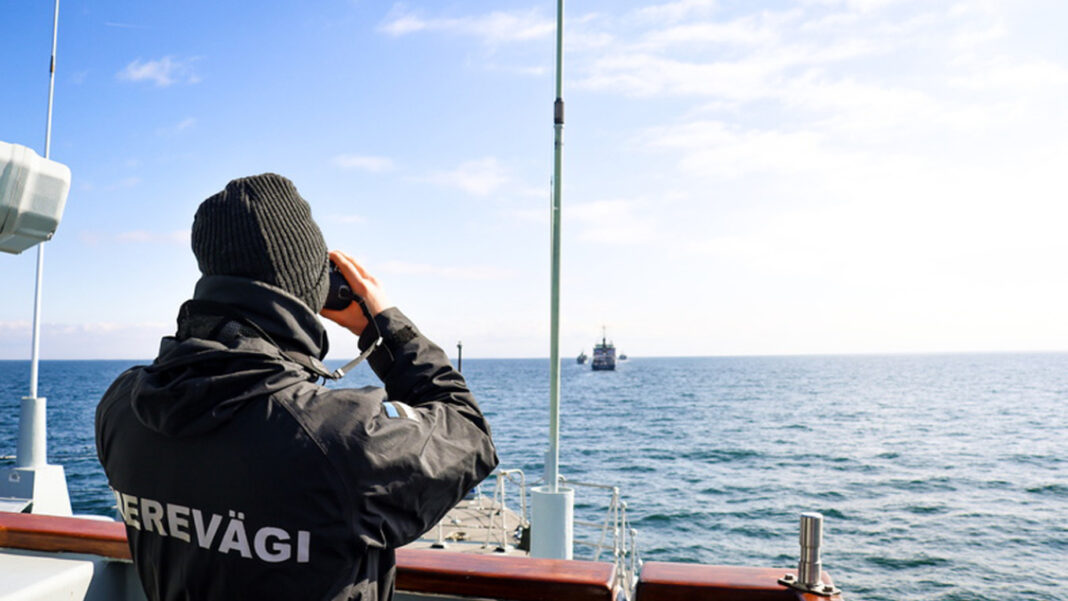In a major step for maritime security, the Estonian Navy recently stopped and detained a Russian-linked oil tanker in the Gulf of Finland. This is the first time Estonia has taken such action against a vessel connected to what is known as Russia’s “shadow fleet.” The tanker, named Kiwala, was sailing off Estonia’s coast on April 11 when it was intercepted.
Historic Action in the Gulf of Finland
The ship was moving between the island of Aegna and the port of Muuga, which is east of Estonia’s capital city, Tallinn. It was heading towards the Russian port of Ust-Luga. The authorities acted based on suspicions that the vessel was not following international laws.
The tanker did not have a valid flag from any country, which means it was not officially allowed to sail in international waters. Ships without a proper flag can be seen as unsafe or even illegal under maritime rules.
Estonia confirmed that the ship Kiwala was already under sanctions from several countries. These include the European Union, the United Kingdom, Canada, and Switzerland. The fact that it was still sailing raised red flags for Estonian officials, prompting the Navy to take action and check the ship’s legal status and documents.
Norway’s Risky K9 Howitzer Gamble Shakes Arctic Tensions
Who Was on Board and What Happened
When the Estonian Navy stopped the vessel, they found 24 people on board. The crew included citizens from Myanmar, and the captain was identified as being from China. Authorities said that there was no damage to nearby underwater cables or infrastructure, so the incident was not related to sabotage or terrorism. Instead, the goal was simply to check the ship’s papers and understand whether it had permission to be where it was.
The authorities also noted that the tanker had some technical issues. As a result, it will remain under detention until those problems are fixed and all legal questions are answered. This includes confirming whether the ship has a right to operate and carry oil through the area.
Estonian officials stated they are allowed to inspect any ships that pass through their exclusive economic zone, especially if the ship is suspicious or has a history of breaking international rules. The move shows that Estonia is serious about protecting both its environment and national security. It also sends a message that the region’s waters are being closely monitored.
Sweden Deploys Powerful JAS-39 Gripen Fighters to Shield NATO Borders Amid Rising Russian Threats
Understanding Russia’s Shadow Fleet
The term “shadow fleet” refers to a group of old and often poorly maintained oil tankers that Russia uses to export oil without following international rules. Many of these ships try to avoid sanctions by hiding their ownership, sailing without clear identification, or using fake documents. These tankers are used to continue selling Russian oil in ways that get around restrictions placed by other countries.
Some of these ships have been re-registered under flags from small or less strict countries, while others, like the Kiwala, are now operating without any flag at all. This makes them harder to track and raises serious safety concerns. Without proper regulation, these vessels can cause accidents or environmental damage.
Because of these concerns, countries like Estonia are becoming more active in stopping and inspecting such ships. The detention of Kiwala marks a turning point for Estonia, as it is the first time the country has stopped a tanker from the shadow fleet. It also reflects a larger effort by countries to enforce international laws and prevent illegal oil trading at sea.
Ukraine’s Fearless F-16 Missions Now Shadowed by Dangerous S-400 Defenses
Ukraine has also taken steps recently by applying sanctions on the captains of these types of tankers, especially those involved in moving oil for Russia and Iran. This shows a growing effort by various countries to stop the shadow fleet from operating freely.
Estonia’s move fits into this larger picture of tightening controls over the flow of oil from Russia, especially in areas where illegal or unsafe methods are being used. As more tankers try to hide their identities or bypass rules, countries along key sea routes are stepping up efforts to catch them.
This first detention by Estonia is a clear example of how countries are now taking stronger actions at sea to stop ships that try to avoid international laws and sanctions. The action against Kiwala sends a strong message about safety, rule enforcement, and protecting regional waters from illegal activities.

